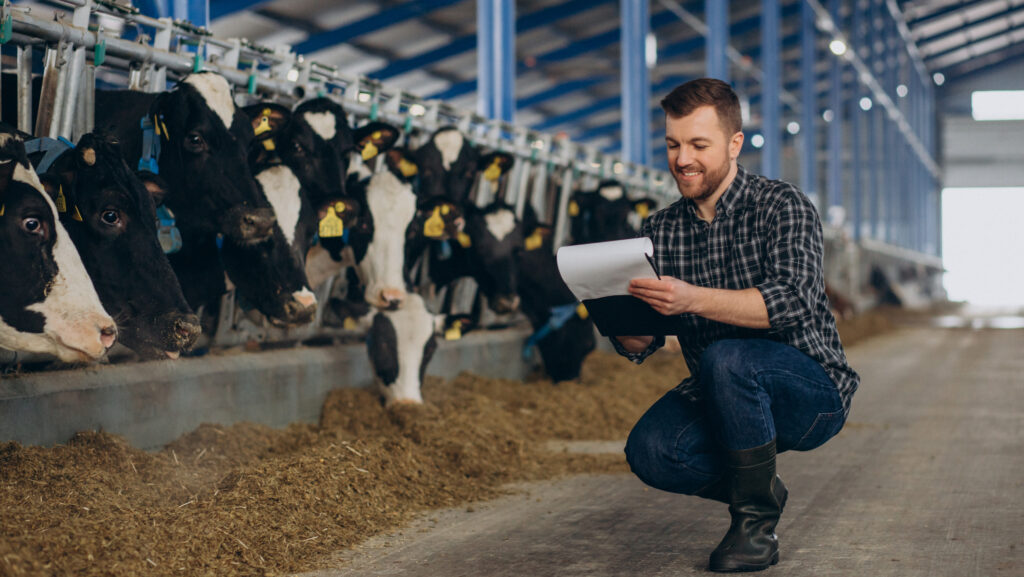How to transform dairy farming passion into financial success
 © Adobe Stock
© Adobe Stock Dairy farm operators who are clear about their goals and what they want to achieve have the number one attribute for success.
With this, they will find ways around problems and get help to fill their skill and knowledge gaps, says New Zealand consultant Paul Bird.
“If you are really clear about what you want, there is a high chance you will achieve it – if you have the right attitude, reputation and skill set,” he says.
Distilling 20-plus years’ experience of running business courses, Paul is launching a one-day workshop for young people.
It is based around the key factors he has seen in dairy farmers who have progressed well in their careers.
See also: Valuable business skills courses for dairy farmers
Wealth creation
His aim is to help new entrants and dairy farmers’ offspring to progress and grow wealth in the industry, by learning to understand themselves and how to create a career path.
Paul reasons that anyone can start from scratch. But to be able to have goals, set a strategy and find the right direction, he says it is important to have role models.
“You end up like the five people you spend most of your time with,” he explains.
“If you have aspirations, then find someone to be like, and be around people who give you ideas and motivation.”
Opportunities in farming are not found in a neat package waiting to be picked up, he adds. This is why having a career plan is important – and it includes networking within the industry.
“Farm owners snap up good people to help them grow their business, so you have to be in the right network,” he says.
Role models
“If you read about someone successful, then ring them up to pick their brains – very few would say no.
“It is a tough thing to do – and you will feel awkward about doing it – but if you push yourself to knock on doors, it helps,” he says, adding that pairing up with a friend may help with confidence.
Becoming self-aware is another important factor. This not only includes learning to recognise personal motivators, strengths and weaknesses, but also inherent skills.
Attention to detail, for instance, is important on a dairy farm, says Paul.
He asks people what jobs they are attracted to at work, which helps them realise whether they like handling data, prefer big-picture thinking, or dreaming of ideas.
“Start to be aware of where you sit – but you do need ‘detail’ people on farm, otherwise you won’t make a profit, so you have got to have someone on the team who is good at it,” he stresses.
While financial skills are crucial in a modern dairy business, they are not solely for managing farm budgets and cashflows.
How someone handles their personal finances has a big influence on their success with money.
Learn to save
“We ask people what financial freedom looks like for them. Some want to buy their own dairy herd, [while] others seek to invest in property rentals.
“Then we talk about what sort of wealth is needed to do this and the financial track they need to get on. We relate boring daily decisions to the goal of farm or home ownership.”
Learning to be a good saver begins with managing spending habits.
For instance, Paul explains that is possible to spend £5 a day on coffee, or to save this amount. Compounded over a lifetime, £5 will eventually become £1m.
For those determined to have a rewarding career in dairying, Paul says it is important to work on having a good reputation from day one in a first job.
“This means turning up to work on time, being reliable and polite, doing what you say you are going to do – and doing a good job.”
A final point, he notes, is that progress is not linear.
He often hears of young people working well for six or seven years, who end up in what he calls the “zone of disappointment” because they think they are getting nowhere.
Suddenly a business opportunity pops up and they enter the “zone of amazement”, which is why he emphasises that there is no instant success; it is a long haul.
Pathways to Profit one-day workshops
- At five locations in England and Wales from 17-24 July
- Course tutors: Paul Bird, New Zealand, and Paidi Kelly, TeamAg, Ireland
- Contact info@teamag.ie for more information
